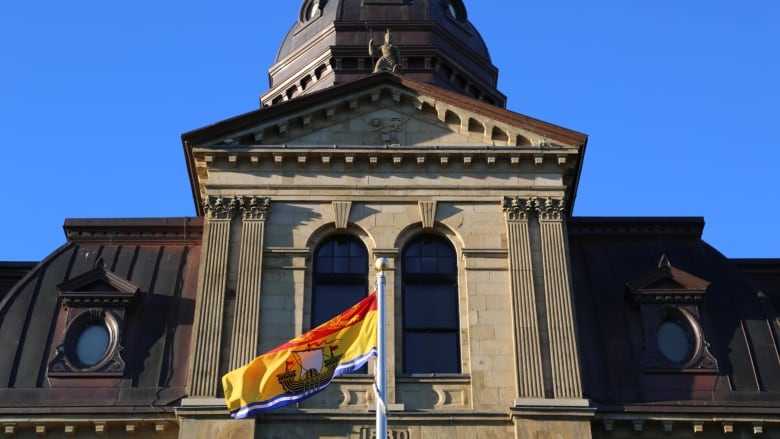Downgrade in credit rating looms as uncertainty grips New Brunswick government
DBRS changed the provincial outlook trend from 'stable' to 'negative' earlier this year

New Brunswick could be facing a credit rating reduction in the coming months if the provincial government fails to show a positive turnaround in its economic outlook, and the outcome of Monday's election hasn't helped its prospects.
"The latest result adds a level of uncertainty to, ultimately, what are going to be the fiscal and economic priorities of this new government," said Travis Shaw, vice-president of public finance at Dominion Bond Rating Service, a major Canadian credit-rating agency.
In February, DBRS changed its assessment of the provincial trend to "negative" from "stable" after what it saw as a continued deterioration of New Brunswick's economic situation. Its A-high rating remained, but the trend change acts a warning of sorts.
Shaw said after making a trend change they hope to see a resolution within a year or so. Otherwise, the province could be slapped with higher interest payments.
But a New Brunswick government passing and implementing a new policy initiative could be months away following a provincial election result that saw the Liberals and Progressive Conservatives fall short of a majority. Separated by one seat, the parties are both determined to form government.

The Brian Gallant Liberals will have the first crack, but the premier said it could be deep into fall before he calls an assembly and attempts to win the confidence of the legislature. If that fails, PC Leader Blaine Higgs could try or another election could be triggered.
"There doesn't seem to be anything that will wildly change the course of the province, so we will take the time to digest and see what this all means, but barring any notable positive turnarounds … it would likely mean a one-notch downgrade," Shaw said.
Credit ratings affect the interest rate that the province must pay when it borrows money to sustain government spending. A lower rating can lead to lenders charging a higher rate, which in turn makes it harder to achieve a balanced budget.
Persistence is key
Shaw said the province's debt burden, which is more than $14.2 billion, is not unmanageable, but the persistent growth in the figure coupled with "lingering deficits" is what troubled the credit-rating agency.
Prior to the election, the Gallant government announced it achieved a surprise surplus for the 2017-18 fiscal year, ending 10 years of consecutive provincial budget deficits, but the 2018-19 budget projects a $189-million deficit.
The shift away from a balanced budget prompted the change to a "negative" trend.
The next provincial budget will be key in the agency's next assessment, Shaw said, but he added it's unclear when it will come, what it will look like and who will deliver it.
Shaw said it's not uncommon to see a working minority government, however.
"We can look to several other examples where we've had minority governments that have been well-functioning and they go about the day-to-day business of government and move forward on various policy initiatives without necessarily being all-consumed by the politics of it," he said.
He said the A-high rating is still "strong" in the eyes of creditors, but the government needs to act.
What needs to be done
The agency is looking for sustainable action. Shaw said Liberal and Tory governments have made attempts to contain spending and boost revenues, yet the debt burden continues grow.
It also wants to see action on long-term challenges facing the province, such as a poor demographic outlook — New Brunswick is one of the oldest provinces — and weak economic growth — New Brunswick's one per cent GDP growth ranks tied for last.
According to provincial economists, long-term challenges weren't discussed on the campaign trail as the parties focused mainly on short-term promises.

Herb Emery, the Vaughan Chair in Regional Economics at the University of New Brunswick in Fredericton, said the parties have largely ignored important long-term issues, such as an aging population or growing debt.
"They're not worried about 10 years out when creditors come calling, potentially," he said.
With files from Jacques Poitras